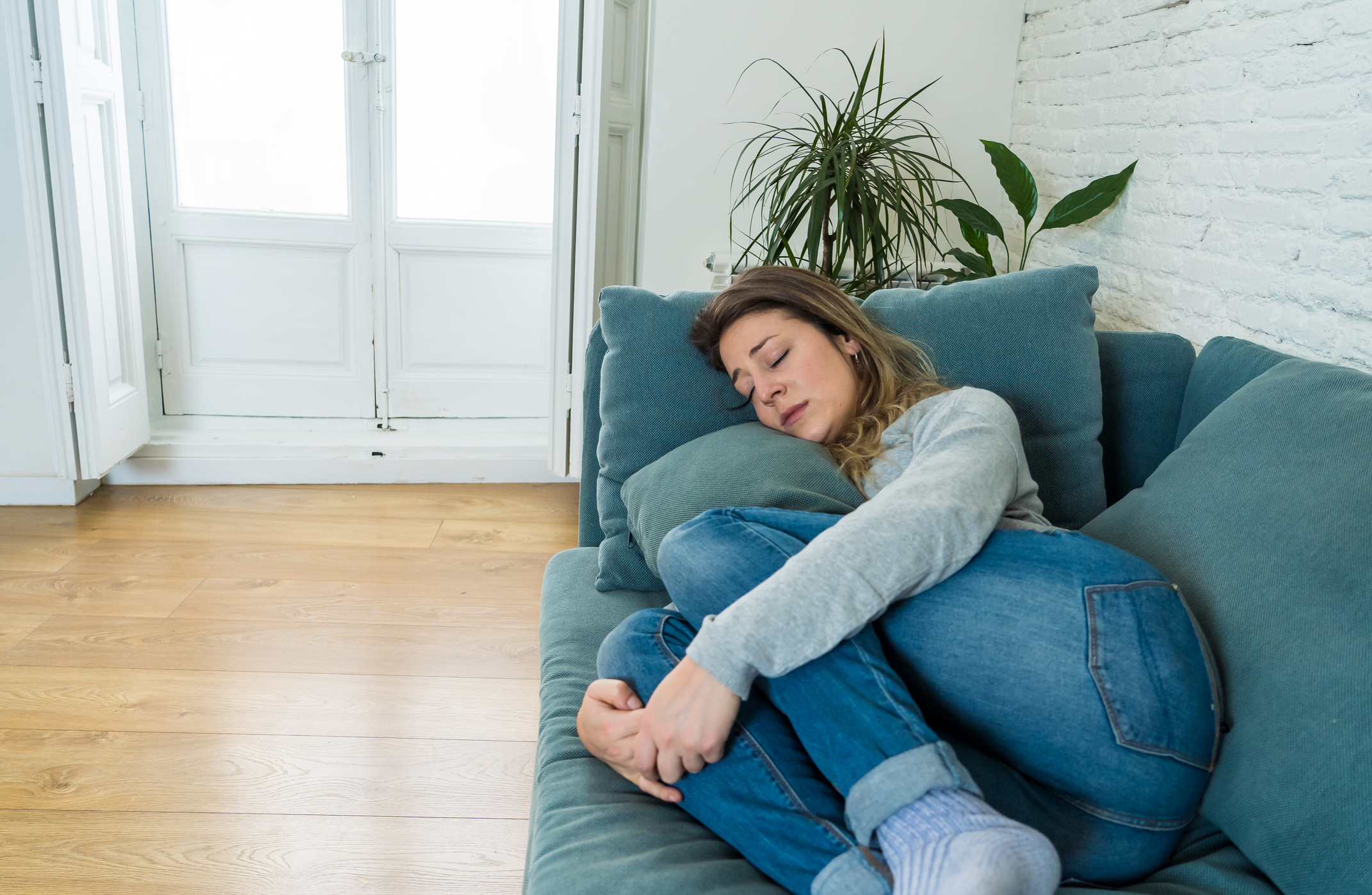

We tend to think of depression as a mood disorder. As such, we expect it to manifest psychological feelings — like persistent sadness, anxiousness, hopelessness or pessimism.
We might also feel irritable, worthless or helpless and lose interest in hobbies or activities we once enjoyed. Depression can even make a person have dark thoughts that include suicide.
These feelings are associated with the mind. But depression isn’t just a disease of the mind; it affects the body as well and can result in actual physical symptoms of depression.
Knowing the physical symptoms may help someone struggling with depression understand the true source of their pain so they seek a resolution that really works. Here are the physical signs of depression to take note of…
Sleep problems
According to Johns Hopkins, 75 percent of people with depression have trouble falling asleep or staying asleep. This shortens the amount of restorative slow-wave sleep a person gets each night.
Oversleeping or sleeping too much is another hallmark of depression. While it’s unclear whether oversleeping causes health problems, it has been linked to type 2 diabetes, heart disease, obesity, headaches and a greater risk of dying from a medical condition.
Chest pain
While chest pain is normally associated with heart attack, it can actually be a symptom of depression. When you are depressed, your heart rate, respiration and blood pressure can increase and potentially trigger chest pain. Of course, if you experience chest pain, you should see a doctor immediately to rule out any heart, lung or stomach problems that might be causing it.
As far as the connection with heart health goes, depression can raise your risk of heart disease. And people who have had heart attacks are more likely to be depressed.
Fatigue
People who are depressed tend not to have the energy for everyday tasks. They often report feeling tired even if they’ve had plenty of sleep. Chronic fatigue can also cause depression, so the two can go hand in hand.
Pain
This is another situation where it can be difficult to know which comes first, the pain or the depression. When you live with ongoing pain, it can raise your risk of depression. And people who are depressed are three times as likely to experience regular pain and four times more likely to get intense, disabling neck or back pain.
Depression is connected to pain because the two conditions share chemical messengers in the brain: serotonin and norepinephrine. Dysregulation of these transmitters can cause both depression and pain.
Digestive issues
It’s become increasingly clear in recent years that there’s a strong connection between our brain and digestive system. This is why many of us get stomach pain or nausea when we’re stressed or worried.
Depression can upset the delicate balance of the digestive system and trigger nausea, indigestion, diarrhea or constipation. Some studies indicate both the depression and the stomach issues stem from the same cause: low levels of serotonin.
Headaches
The type of headache that most commonly accompanies depression is tension-type headache. However, depressed individuals can also suffer from other primary headache disorders, like migraines or cluster headaches.
In fact, research shows that people with major depression are three times more likely to have migraines, and people with migraines are five times more likely to become depressed.
Weight or appetite changes
Depression can affect appetite in both directions. Some people can’t stop eating and gain weight. Others feel less hungry when they get depressed and lose weight as a result. This lack of appetite is likely caused by anhedonia, a core feature of depression that causes you to feel less pleasure from things you normally enjoy.
Depression has been linked to eating disorders such as bulimia, anorexia or binge eating.
Agitation or restlessness
Surprisingly, depression doesn’t always just manifest as sadness or hopelessness; it can actually make you irritable or restless. One group of clinicians surveyed thousands of their psychiatric patients about whether they had recently experienced anger episodes. Two-thirds reported notable levels of irritability and anger, and half reported it at a moderate or severe level. Men are more likely than women to experience this symptom.
Sexual dysfunction
People who are depressed tend to lose interest in sex. This is in part because of the depression itself and in part because some prescription drugs for depression can affect sex drive and performance.
One activity addresses multiple symptoms
There is one activity that can help with many of the physical symptoms on this list: exercise. Research suggests regular exercise releases chemicals in the brain that make you feel good, improve your mood and reduce your sensitivity to pain. And exercise helps you sleep better as well.
Yoga has proven especially effective for reducing signs and symptoms of depression. But even just taking a walk around the block can help get those feel-good chemicals moving in your brain.
Sources:
Slideshow: Physical Symptoms of Depression — WebMD
Depression and Sleep: Understanding the Connection — Johns Hopkins Medicine
Oversleeping: Bad for Your Health? — Johns Hopkins Medicine
What Depression Feels Like — UPMC MyHealth Matters
The Link Between Depression and Physical Symptoms — The Primary Care Companion to the Journal of Clinical Psychiatry
A Moody Gut Often Accompanies Depression—New Study Helps Explain Why — Columbia University Irving Medical Center
The Link Between Mental Illness and Your Headaches — Verywell Health
If You’re Often Angry Or Irritable, You May Be Depressed — Harvard Catalyst
How Depression Affects Your Appetite — Plus, 5 Ways to Manage It — Everyday Health

